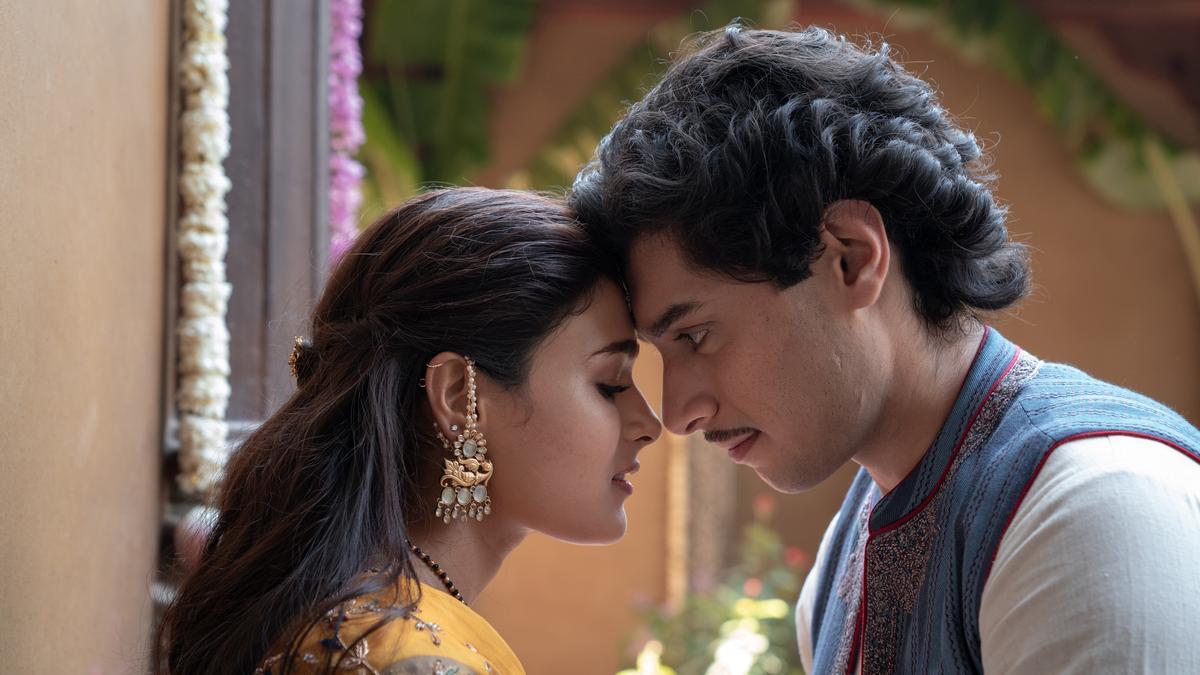
In an unusual turn of events, the release of the film “Maharaj” on Netflix took its viewers on a journey as tumultuous as the story it seeks to tell. In the 1860s, Karsandas Mulji, a resolute journalist and social reformer, faced legal persecution for exposing the nefarious activities of a powerful godman through his writings. Fast forward over 150 years, and “Maharaj” — a cinematic depiction of Mulji’s life starring newcomer Junaid Khan — faced a similar fate. The film’s release was temporarily halted due to a petition filed by adherents of a religious sect, a move amplified by boycott calls on social media. However, the Gujarat High Court, after reviewing the film, found no objectionable content and lifted the stay, allowing the film to begin streaming on June 21.
Directed by Karan P Malhotra, “Maharaj” is adapted from Saurabh Shah’s 2013 Gujarati novel and dramatizes the landmark 1862 Maharaj libel case. This case saw imperial British judges navigating a complex terrain between stringent religious conservatism and nascent progressive reform within colonial India. Mulji found himself embroiled in a defamation suit pressed by Jadunathji, a revered high priest of the influential Pushtimarga sect of Vaishnavites. The trial, which was held in the then-Supreme Court of Bombay, captivated public attention, sparking widespread debate. Karsandas, who served as the editor of the Gujarati-language weekly Satyaprakash, successfully defended his position and emerged victorious, though the reward he received did not offset the substantial expenses he incurred during the trial.
Strangely, the film does not immediately delve into this courtroom drama. Malhotra prudently relegates the courtroom scenes to the film’s final act, possibly to avoid the clichés of grandiose wigs and exaggerated accents that often plague Hindi period dramas. Instead, the majority of the film focuses on the protracted conflict between Karsandas (portrayed by Junaid Khan) and the unscrupulous Jadunath (played by Jaideep Ahlawat). Jadunath, affectionately known as JJ among his followers, is a magnetic yet manipulative figure who exploits the faith and vulnerability of his female devotees for his sexual gratification. Nearly everyone is enchanted by JJ, except for Karsandas, who, despite being a believer and a member of the same sect, questions the superstitions while holding onto his faith.
The film initially portrays Karsandas as a paragon of virtue, boldly advocating for widow remarriage and even defying social norms by borrowing food from an ‘untouchable.’ His resolve to publicly denounce JJ’s misconduct is intensified when his fiancée, Kishori (played by Shalini Pandey), a victim of JJ’s predatory actions, commits suicide after Karsan ends their engagement in disgust. Realizing the gravity of his mistake—prioritizing his betrothed’s “honor” over her emancipation—Karsan channels his grief into a relentless quest for justice.
. This subplot, however, places Karsan in the somewhat dated role of a 19th-century male savior, reflecting the film’s broader theme of men discussing women’s rights, albeit Viraaj (Sharvari Wagh) later joins Karsan in his campaign against JJ, providing a semblance of female agency.
The film also provides a vivid commentary on the socio-political landscape of 19th-century India. Early scenes describe Bombay as a “concept more than a city,” presenting a nuanced view of the disparate ideas shaping the country. We see the progressive zeal of reformers like Karsandas and Dadabhai Naoroji, juxtaposed against the entrenched authority of religious leaders like JJ and the uncertainty among the general populace. While the production design occasionally feels artificial, similar to another YRF production, Jayeshbhai Jordaar, Rajeev Ravi’s cinematography imbues the film with a picturesque, almost painterly quality.
“Maharaj” does not shy away from depicting the oppressive influence of JJ, who consolidates power by drawing affluent patrons and becoming the sect’s face. Yet, the film attempts to balance this critique by portraying religion itself as a unifying force. When JJ imposes a ban on temple visits to force an apology from Karsandas, the latter counters by installing a picture of Lord Krishna under a peepal tree and leading a public aarti. Later, the narrative echoes the Janmashtami story, with a dramatic midnight escape of a pregnant couple in a bullock cart.
Junaid Khan, while sincere in his portrayal of Karsandas, has room for growth before becoming a compelling leading man. His performance in the courtroom scenes especially falls flat in comparison to Jaideep Ahlawat’s effortless portrayal of villainy. The dynamic between the two culminates in a vintage 1970s-style rain-soaked confrontation, highlighting the disparities in their performances. Sharwari Wagh and Jay Upadhyay add depth to their roles, bringing charm and subtlety to the film.
Earlier this year, the Tamil film “Annapoorani” was pulled from Netflix due to backlash over alleged religious insensitivity. In a time of heightened sensitivity, “Maharaj,” with its simple, unassuming demeanor, might have gone unnoticed if not for the controversies surrounding it. Netflix’s cautious approach to releasing the film—unaccompanied by promotions or a trailer—illustrates the careful line streaming platforms must tread. In the end, “Maharaj” underscores a fundamental truth: progress is rarely, if ever, straightforward.
“Maharaj” is now available for streaming on Netflix.












